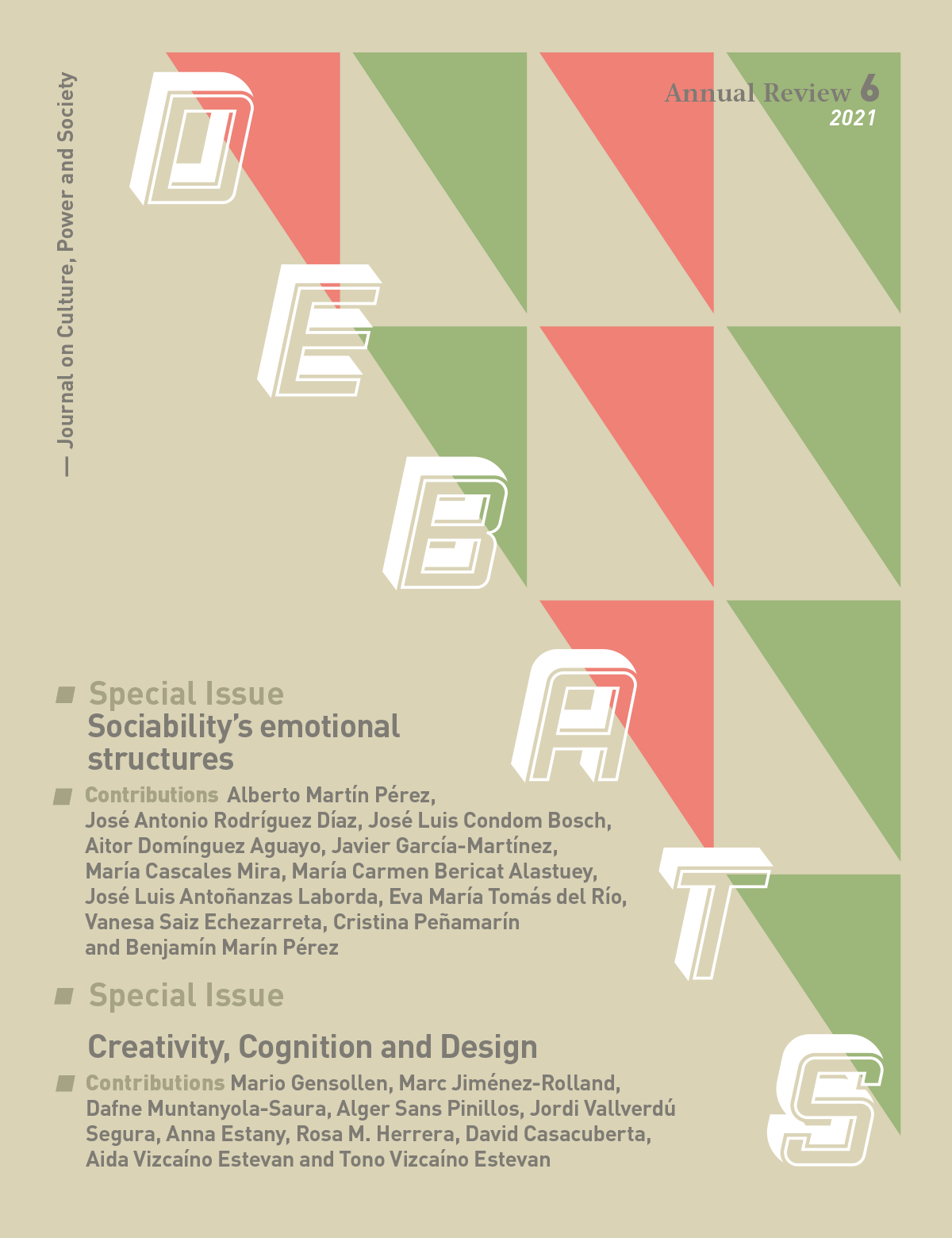Analysis of Affective Discourse in the Change Process of the Employment Relationship Model: Environment Management through Collective Bargaining
DOI:
https://doi.org/10.28939/iam.debats-en.2021-4Resum
This paper covers research whose goal was to analyse affective changes in the process of change in the labour relations model that was consolidated throughout the 1990s. Based on a case study, the focus was on the emotional content expressed by the protagonists in
relation to this collective bargaining framework. In conducting the analysis, we used the wide range of procedures provided by Discourse Analysis (DA). Part of this analysis focused on the protagonists’ emotional management of the early stages of the negotiation. The results let us delve deeper into the affective nature of this process, thereby expanding the light shed by other theoretical and methodological perspectives on this change in the labour relations model.
Descàrregues
Referències
Aglietta, M. (1979). Regulación y crisis del capitalismo. Madrid: Siglo XXI.
Alonso, L. E. and Fernández, C. J. (2013). Los discursos del presente: Un análsis de los imaginarios sociales comtemporáneos.
Madrid: Siglo XXI.
Beck, U. (2001). ¿Qué es la globalización? Falacias del globalismo, respuestas a la globalización. Barcelona: Paidós.
Beck, U. (2002). La sociedad de riesgo global. Madrid: Siglo XXI.
Bericat, C. (2017). Las relaciones laborales. In D. Pac, C. Gómez, J. Bergua and C. Bericat, Sociedad: Economía,
organización y consumo (p. 205-231). Madrid: Delta.
Bericat, C. (2019). La transformación de las relaciones laborales: Fundamenteos teóricos de un proceso de cambio. Zaragoza:
Prensas de la Universidad de Zaragoza.
Bericat, E. (2012). Emotions. Sociopedia, 1-13.
Boltanski, L. and Chiapello, E. (2002). El nuevo espíritu del capitalismo. Madrid: Akal.
Calsamiglia, H. and Tusón, A. (2007). Las cosas del decir. Barcelona: Ariel.
Camps, V. (2011). El gobierno de las emociones. Barcelona: Herder.
Carrier, D. (1988). La estrategia de las negociaciones colectivas. Madrid: Tecnos.
Castells, M. (2000). La era de la información, I: La sociedad red. Madrid: Alianza Editorial.
Fernández Rodríguez, C. J. (2007a). El discurso del management: Tiempo y narración. Madrid: CIS.
Fernández Rodríguez, C. J. (2007b). Vigilar y organizar: Una introducción a los Critical Management Studies. Madrid:
Siglo XXI.
Fernández, I. and Carrera, P. (2007). Las emociones en psicología social. In J. Morales, E. Gaviria and M. Moya,
Psicología social. Madrid: McGraw-Hill.
Gorroño Arregui, I. (2008). El abordaje de las emociones en las organizaciones: Luces y sombras. Cuaderno de
Relaciones Laborales, 26(2), 139-157.
Hochschild, A. R. (2008). La mercantilización de la vida íntima. Madrid: Katz.
Iñiguez Rueda, L. (2006). Análisis del discurso: Manual para las ciencias sociales. Barcelona: UOC.
Kochan, T. A., Katz, H. C. and McKersie, R. B. (1993). La transformación de las relaciones laborales en los Estados
Unidos. Madrid: MTSS.
Martín Artiles, A. (1999). Organización del trabajo y nuevas formas de gestión laboral. In F. Miguélez and C. Prieto,
Las relaciones de empleo en España. Madrid: Siglo XXI.
Martín Artiles, A. (2014). Transformaciones recientes en el modelo de Relaciones Laborales. Anuario IET de Trabajo
y Relaciones Laborales, 2, 1-26.
Mora, J. and Martín, M. (2010). Análisis comparativo de los principales paradigmas en el estudio de la emoción
humana. REME, XIII(34).
Russell, J. (1980). A circumplex model of affect. Journal of Personality and Social Psychology, 39(6), 1161-1178.
Sarries Sanz, L. (1993). Sociología de las relaciones industriales en la sociedad postmoderna. Zaragoza: Mira.
Touraine, A. (2009). La mirada social: Un marco de pensamiento distinto para el siglo XXI. Barcelona: Paidós Ibérica.
Vega, M. L. (2006). Las relaciones laborales en Europa: Principales características y tendencias. Revista Trabajo, 2(2),
-22.
Descàrregues
Publicades
Com citar
Número
Secció
Llicència
Sense perjudici del que disposa l'article 52 de la Llei 22/1987 d'11 de novembre de Propietat Intel·lectual, BOE del 17 de novembre de 1987, i conforme a aquest, els/les autors o autores cedeix/en a títol gratuït els seus drets d'edició, publicació, distribució i venda sobre l'article, per tal que siga publicat a Debats. Revista sobre cultura, poder i societat.
Debats. Revista de cultura, poder i societat es publica sota el sistema de llicències Creative Commons segons la modalitat “Reconeixement – NoComercial (by-nc): Es permet la generació d’obres derivades sempre que no se’n faça un ús comercial. Tampoc no es pot fer servir l’obra original amb finalitats comercials”.
Així, quan l’autor/a envia la seva col·laboració, accepta explícitament aquesta cessió de drets d’edició i de publicació. Igualment autoritza Debats. Revista de cultura, poder i societat la inclusió del seu treball en un fascicle de la revista perquè es puga distribuir i vendre.











